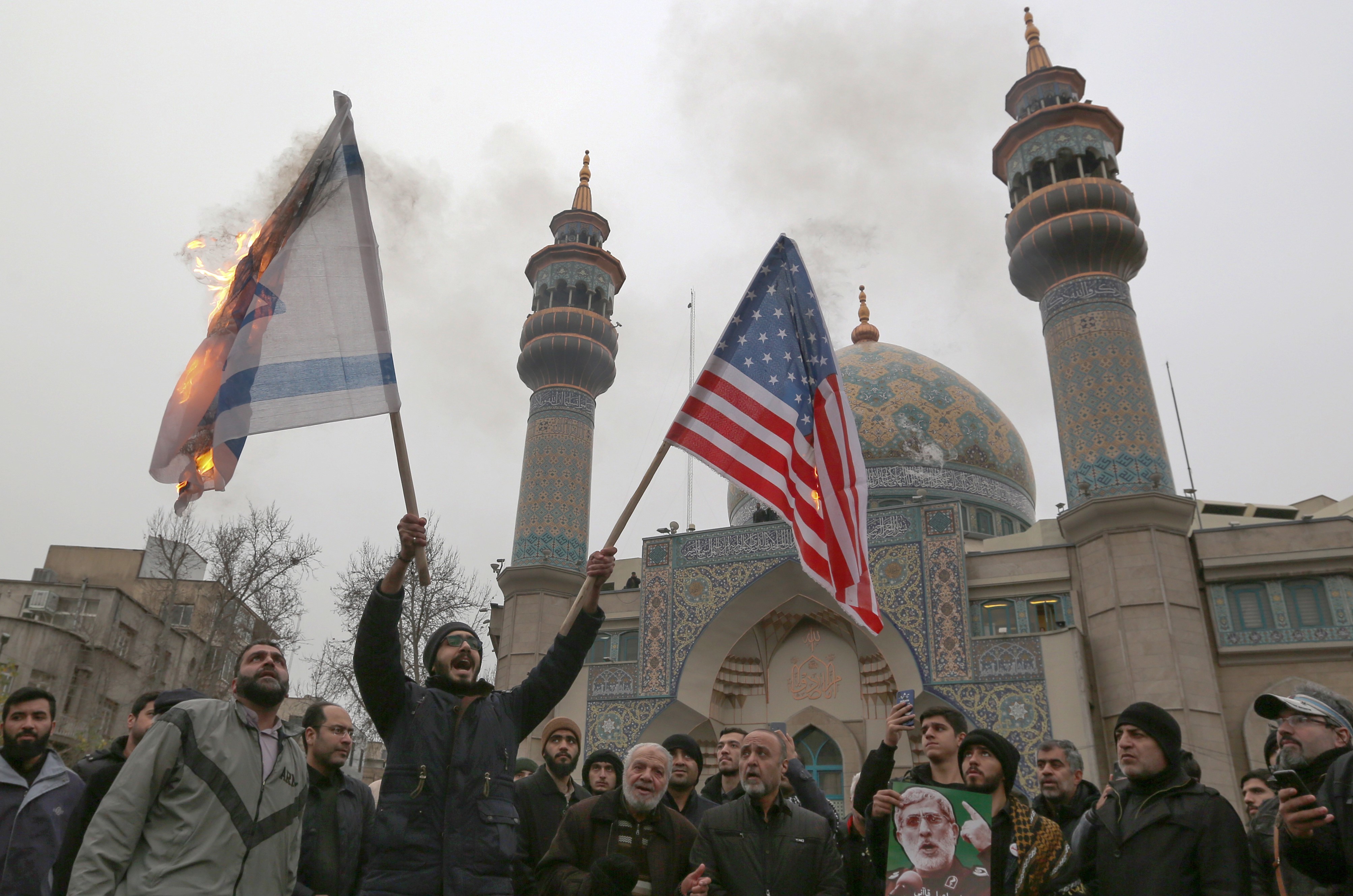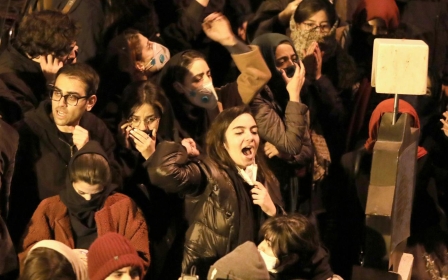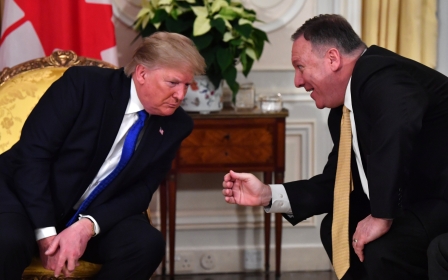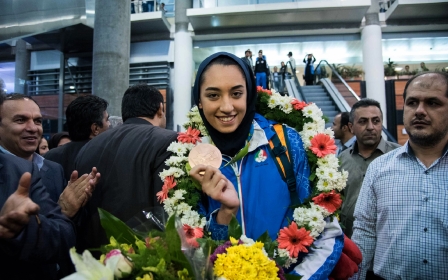Tehran students speak: 'The voice of the people has been lost'
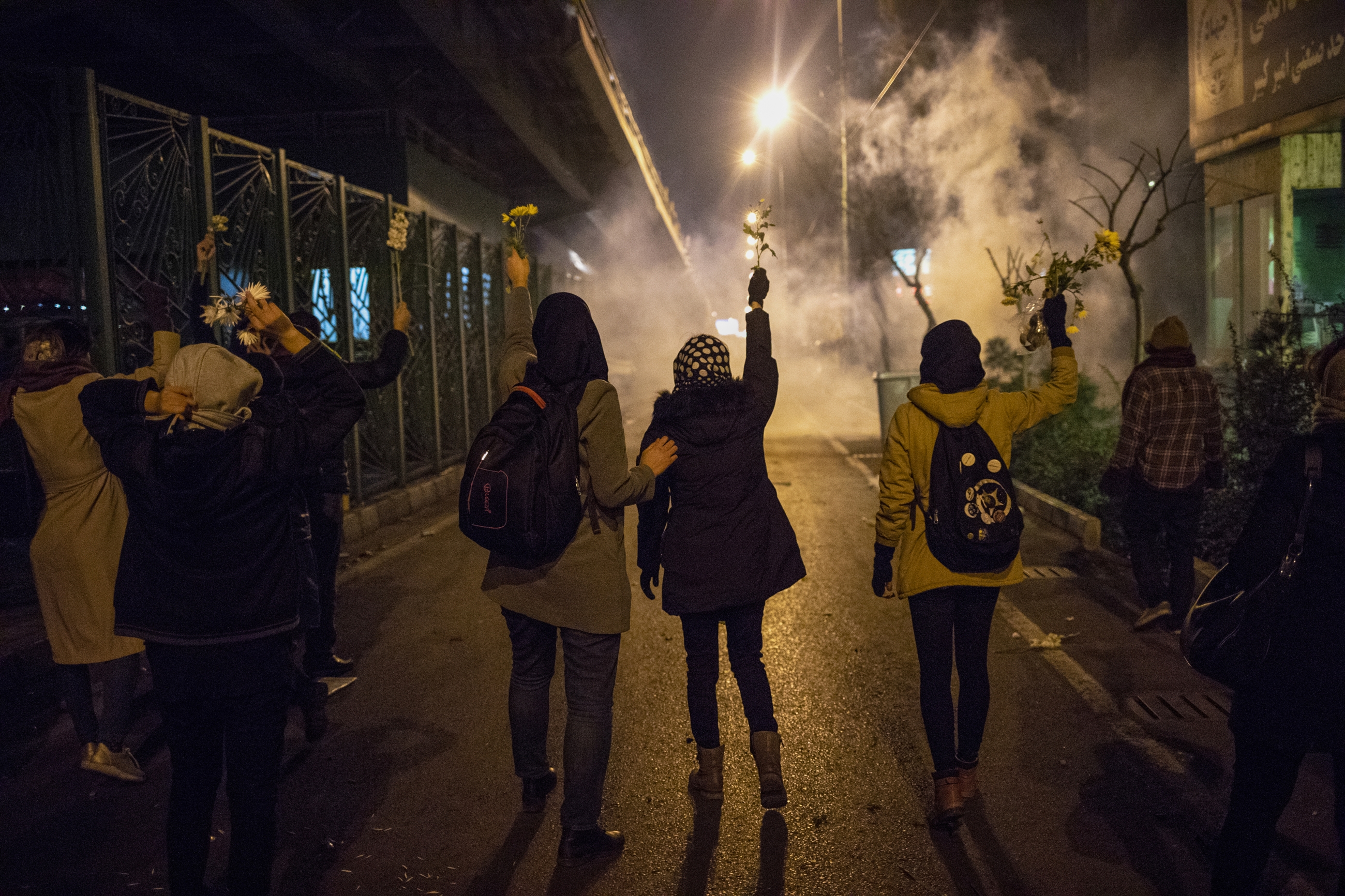
The following statement was issued by a group of students at Amir Kabir (Polytechnic) University in Tehran, protesting an admission of guilt by the Iranian government for downing Ukraine International Airlines Flight 752 with a missile on 8 January 2020.
The flight was shot down in what one Iranian official called an “unforgivable mistake” and another said was due to "human error in a time of crisis". This occurred after the 3 January US assassination of IRGC major general Qassem Soleimani in Iraq and the 7 January Iranian attack of the Ain al-Asad airbase in Iraq housing American and Iraqi soldiers.
The below introduction and translation are by Naveed Mansoori, Golnar Nikpour, and Arash Davari, and were first posted by Jadaliyya.
These days Iran is drowning in sorrow and grief. We wash away blood with more blood. We pile suffering upon suffering, we wash the corpse of one martyr with the blood of another. It’s as if history has been compressed; one crisis follows another and threats respond to threats. We, the children of Iran, do not see ourselves as separate from the people of the country.
It’s as if history has been compressed; one crisis follows another and threats respond to threats
Their pain is our pain. The grief that has settled in their hearts weighs heavily on our chests as well. The tragedy reached its peak on Wednesday morning, when only one day after the killing of tens of fellow citizens in Kerman, Iran once again witnessed its children fade into the horizon. We had not yet been given an opportunity to mourn the deaths of the Aban martyrs [hundreds of protesters were killed by security forces when thousands took to the streets in October, the month of Aban in the Iranian Hijri calendar] when we were given yet another reason to grieve.
New MEE newsletter: Jerusalem Dispatch
Sign up to get the latest insights and analysis on Israel-Palestine, alongside Turkey Unpacked and other MEE newsletters
Today, "evil" flanks us from every shore. While economic policies and political repression suffocate the people, the shadow of war looms over our heads. What has been lost in the current political climate, amidst ongoing threats from military powers, is the voice of the people.
A people who, above all, long for freedom and equality. In Aban, they brought the sound of that voice to everyone’s attention in the best manner possible.
The events of the past two months have been a clear and complete manifestation of the incompetence of the ruling order in Iran. An order whose sole response to every crisis is repression (sarkub). Today, it is incumbent upon us to target the totality of our oppression (sarkub) whether in the form of a repressive government or an imperialist power.
In recent years, the presence of the United States in the Middle East has done nothing but sow chaos and disorder. We have long understood where we stand in relation to this aggressive power. Nonetheless, we also understand that US adventurism in the region cannot be an excuse to justify domestic repression.
The only way out of our current predicament is the simultaneous rejection of both domestic despotism and imperial arrogance
If these days “national security” is on the tip of everyone’s tongue, the time has come for us to ask what they mean by security, for which groups, classes, and social strata? We are not afraid to cry out, “The security of impoverished, excluded, and deprived Iranians has been pillaged for years!”
The economic policies of the past three decades, in conjunction with the rentier class, the wealthy, and the corrupt, have created an enormous number of have-nots and outcasts. The situation is made all the worse by the fact that a corrupt and totally dependent opposition has developed outside of our borders with the aid of the media and financial support of outside powers. Yes, today we are surrounded by evil on all sides.
People of Iran: the only way out of our current crisis is a return to popular politics.
A politics that neither clings to the coattails of (imperial) arrogance [istikbar] from fear of oppression, nor legitimises tyranny in the name of anti-imperialism and resistance. Indeed, the only way out of our current predicament is the simultaneous rejection of both domestic despotism and imperial arrogance.
We need a politics that doesn’t merely claim security, freedom and equality for a select group or class, but that understands these rights as inalienable and for all people.
Today, the urgent need for social democracy has become clear to all. In such a democracy, the government will not be inattentive to the needs of the people, but will safeguard security, freedom and equality for all.
We, the children of Iran, extend our condolences to all of the people of our country for the death of hundreds of our fellow citizens in Kerman and in the downing of the plane, and we swear we will not allow their blood to have been spilled in vain. History will never forget the spilled blood of the innocent.
History will return with force to take revenge on the oppressor on behalf of the oppressed.
The introduction and translation are by Naveed Mansoori, Golnar Nikpour, and Arash Davari, and were first posted by Jadaliyya.
The views expressed in this article belong to the author and do not necessarily reflect the editorial policy of Middle East Eye.
Middle East Eye delivers independent and unrivalled coverage and analysis of the Middle East, North Africa and beyond. To learn more about republishing this content and the associated fees, please fill out this form. More about MEE can be found here.


